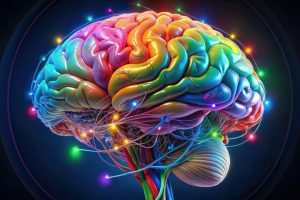Getting enough sleep is important for a variety of reasons, but a team of international scientists has discovered a new incentive to get eight hours of sleep every night: sleep helps the brain to store and learn a new language. A study led by the University of South Australia (UniSA) and published in the Journal of Neuroscience found that coordinating two electrical events in the sleeping brain significantly improves our ability to remember new words and complex grammatical rules.
How Sleep Disorders Affect Language Learning
In an experiment with 35 English-speaking adults, the researchers monitored the brain activity of participants who learned a miniature language called Mini Pinyin, which is based on Mandarin but has similar grammatical rules to English. Half of the participants learned Mini Pinyin in the morning and then returned in the evening to have their memory tested. The other half learned Mini Pinyin in the evening and then slept in the laboratory while their brain activity was recorded. The researchers tested their progress in the morning. Those who had slept performed significantly better compared to those who had stayed awake.

Post-sleep neural activity showed unique patterns of theta oscillations associated with cognitive control and memory consolidation, suggesting a strong link between sleep-induced brain wave coordination and learning outcomes. By showing how specific neuronal processes during sleep support memory consolidation, the researchers offer a new perspective on how sleep disorders affect language learning. Sleep is not just restful, but an active, transformative state for the brain.
The findings could also potentially inform treatment for individuals with language-related impairments, including autism spectrum disorder (ASD) and aphasia, who suffer from sleep disorders more than other adults. Research in animals and humans shows that slow oscillations enhance neuronal plasticity – the brain’s ability to change and adapt in response to experiences and injuries. From this perspective, slow oscillations could be increased by methods such as transcranial magnetic stimulation to accelerate aphasia-based language and speech therapy. In the future, the researchers want to investigate how sleep and wake dynamics influence the learning of other complex cognitive tasks.
Nighttime Sleep is Key to Academic Performance
College is a time of transition for young adults. It may be the first time that students have the freedom to manage their own schedules, but with this freedom comes the competing demands of academics, social events and even sleep. Getting enough high-quality sleep is essential for cognitive performance. A team of researchers from several institutions conducted the first study to evaluate how the duration of nightly sleep at the beginning of the semester affects the grade point average (GPA) of first-year college students at the end of the semester. Using Fitbit sleep trackers, they found that students sleep an average of 6.5 hours a night, but negative outcomes start to pile up when students get less than six hours a night of slumber.
Previous studies have shown that total sleep duration is an important predictor of a variety of health and performance outcomes. Sleep guidelines recommend that teenagers get 8 to 10 hours of sleep each night. Many college students have erratic sleep schedules and get too little sleep. “Animal studies have shown the importance of sleep for learning and memory,” Creswell said. Here, we show how this work can be generalized to humans. For college students, the less nighttime sleep a freshman gets at the start of the school term, the lower their grade point average at the end of the term, about five to nine weeks later. Lack of sleep may impair students’ ability to learn. Previous work with animals has shown that memories formed during the day are consolidated during sleep.
When normal sleep patterns are disrupted, the daytime-learned content is lost. The researchers applied this logic to college students and wondered if interrupted or insufficient sleep could affect their academic learning and whether this would be reflected in their academic performance. Much to their surprise, the researchers found that students who got less than six hours of sleep showed a significant decline in academic performance. Furthermore, each hour of sleep lost corresponded to a 0.07 drop in grade point average at the end of the semester. The study controlled for past academic performance, daytime naps, race, gender and first-generation status. Several studies also controlled for total academic course load. None of these factors affected the overall impact of nighttime sleep on GPA. This work suggests the importance of developing structured programs and policies at educational institutions that encourage students to focus on their sleep.






